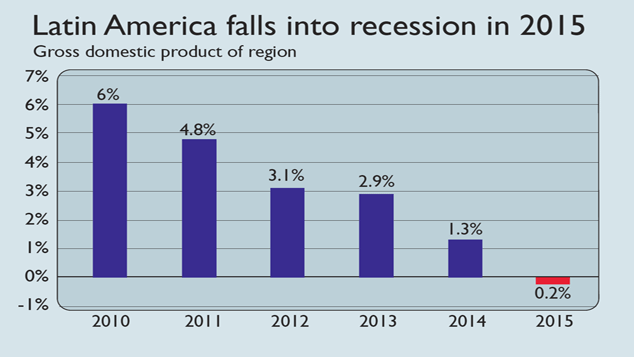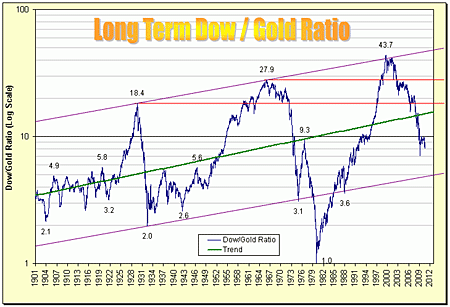Protect your wealth from the all-powerful bankers
Gold is the best insurance against economic collapse and the misuse of power by central banks. But simply holding gold may not be enough. Bengt Saelensminde explains why it's essential to diversify your gold holdings, and outlines the best ways to do it.
Get the latest financial news, insights and expert analysis from our award-winning MoneyWeek team, to help you understand what really matters when it comes to your finances.
You are now subscribed
Your newsletter sign-up was successful
Want to add more newsletters?

Twice daily
MoneyWeek
Get the latest financial news, insights and expert analysis from our award-winning MoneyWeek team, to help you understand what really matters when it comes to your finances.

Four times a week
Look After My Bills
Sign up to our free money-saving newsletter, filled with the latest news and expert advice to help you find the best tips and deals for managing your bills. Start saving today!
Last week, I argued that central bankers are now more powerful than our elected politicians. And it's pretty clear that these central bankers will do anything they can to save the powerful banking system.
I could have said "they'll do anything within their powers" but it's now obvious they'll just change their powers if necessary.
We've already seen central bankers and the powerful IMF practically bust Ireland, Portugal and Greece in their efforts to save the banking system. In the US, they used something called the 'Troubled Asset Relief Program' (TARP), which is tantamount to money printing.
MoneyWeek
Subscribe to MoneyWeek today and get your first six magazine issues absolutely FREE

Sign up to Money Morning
Don't miss the latest investment and personal finances news, market analysis, plus money-saving tips with our free twice-daily newsletter
Don't miss the latest investment and personal finances news, market analysis, plus money-saving tips with our free twice-daily newsletter
Each time the economic crisis deepens, the central banks take on more power and more debt. And as they do, they sow the seeds for the next phase of the collapse.
Today, I want to look at how to protect yourself from an increasingly powerful banking system that has gone mad.
Gold isn't enough
On Friday, I said that I was surprised gold hadn't already smashed through its all time high of $1,575. Well, as I write, that's exactly where it is.
And this marks a new phase for gold. Given that quantitative easing (QE) has now run its course, many pundits were expecting gold to come off the boil. But it hasn't. This puts paid to the idea that the gold bull is simply down to QE inspired speculation. There's more to it than that.
Gold is being bought to protect wealth against the misuse of power by the central banks. But as the economic authorities change and bend the rules, they may come after your gold. Many people I speak to are worried about gold confiscation by the authorities.
If it comes to it, the authorities may say something like "gold speculators are trying to bring down the financial system". They'll say they need to bring the speculators to heel and force holders to sell their gold back to the central banks.
What's the point in holding gold as the ultimate insurance if, when the worst comes to the worst, you're forced back into faltering paper currency?
Two ways to diversify your gold holdings
As with all investment, the key here is to diversify your holdings. You can do that in two ways. First, you can use different types of vehicle. You can buy gold mining stocks, exchange-traded funds (ETFs), spread bets or physical gold for instance.
Secondly, you can diversify where you hold your gold. Geographic diversification is just as important as the vehicle you use. That's because different jurisdictions may deal with speculators' differently.
And today there are no excuses. You can diversify your holdings without even leaving the comfort of your own home.
You can buy gold bullion all over the world. The Perth Mint Certificate Programme is a government backed precious metal certificate programme. They store physical gold in their vaults in Australia and issue you a certificate for your holding.
Similarly, you could use BullionVault.com where you can buy gold stored in London, New York, or Zurich. They've had very good reviews in the press and look like a great way to get exposure. I have to confess, I haven't used them. I've taken to organising my own vault.
I prefer to buy gold coins and store them in a personal safety box. In the event of gold confiscation', it may be that the authorities focus on bullion. Private collections of coins are less likely to attract their interest.
Krugerrands and gold sovereigns are easy to buy from bullion dealers. Once you've got them, you can keep them at home (make sure you tell your insurer), or you can get a safety deposit box.
I pay around £130 a year for a box in London. In it, I stash coins (silver and gold) as well as any other important documents I've got.
Spread your gold around
Another great diversifier is gold stocks. You can diversify your holdings geographically and into different legal jurisdictions (depending on which exchange your stock trades).
Last week, Dominic Frisby, our gold guru, issued a brand new report. In it, he identifies his favourite five gold stocks to hold now. Apart from anything else, it's a great read. I'd get hold of a copy and take action because these stocks could follow the gold price up.
For the moment, I'm still holding paper gold' through ETFs and spread bets. But as time goes on, I'm gradually converting these holdings into physical coins.
At some point, I may have to get a bigger safety box!
The global feds are clearly intent on saving the banks. As things develop (or should I say break down), it's looking more important to take control of your gold.
For me, that's gold stocks and physical coins. If you want to stay in paper, then just make sure you're diversified.
And do have a look of Dominic's cracking gold report it's a great way to diversify your gold holdings.
This article is taken from the free investment email The Right side. Sign up to The Right Side here.
The FSA does not regulate certain activities, this includes the buying and selling of some commodities such as gold. Advice relating to investing in gold related shares or products is regulated by the FSA. Your capital is at risk when you invest in shares, never risk more than you can afford to lose. Please seek independent financial advice if necessary. MoneyWeek Ltd: 020 7633 3780.
MoneyWeek Ltd receives commissions from BullionVault.
Important Information
Your capital is at risk when you invest in shares - you can lose some or all of your money, so never risk more than you can afford to lose. Always seek personal advice if you are unsure about the suitability of any investment. Past performance and forecasts are not reliable indicators of future results. Commissions, fees and other charges can reduce returns from investments. Profits from share dealing are a form of income and subject to taxation. Tax treatment depends on individual circumstances and may be subject to change in the future. Please note that there will be no follow up to recommendations in The Right Side.
Managing Editor: Frank Hemsley. The Right Side is issued by MoneyWeek Ltd.
MoneyWeek Ltd is authorised and regulated by the Financial Services Authority. FSA No 509798. https://www.fsa.gov.uk/register/home.do
Get the latest financial news, insights and expert analysis from our award-winning MoneyWeek team, to help you understand what really matters when it comes to your finances.
Bengt graduated from Reading University in 1994 and followed up with a master's degree in business economics.
He started stock market investing at the age of 13, and this eventually led to a job in the City of London in 1995. He started on a bond desk at Cantor Fitzgerald and ended up running a desk at stockbroker's Cazenove.
Bengt left the City in 2000 to start up his own import and beauty products business which he still runs today.
-
 Should you buy an active ETF?
Should you buy an active ETF?ETFs are often mischaracterised as passive products, but they can be a convenient way to add active management to your portfolio
-
 Power up your pension before 5 April – easy ways to save before the tax year end
Power up your pension before 5 April – easy ways to save before the tax year endWith the end of the tax year looming, pension savers currently have a window to review and maximise what’s going into their retirement funds – we look at how
-
 Who will follow Sri Lanka into a debt crisis?
Who will follow Sri Lanka into a debt crisis?News Sri Lanka defaulted on its debt in May as soaring global food prices and a tourism slowdown collided with years of profligate state spending. Which countries could follow?
-
 The emerging-markets debt crisis
The emerging-markets debt crisisBriefings Slowing global growth, surging inflation and rising interest rates are squeezing emerging economies harder than most. Are we on the brink of a major catastrophe?
-
 Make money from the metals mining boom in Latin America
Make money from the metals mining boom in Latin AmericaTips Covid-19 has hit Latin America harder than any other. But the continent's highly competitive mining sector looks poised to profit handsomely over the next few years. James McKeigue explains
-
 Why Vietnam is the star of Southeast Asia
Why Vietnam is the star of Southeast AsiaEditor's letter Emerging markets should be a good source of income in the years ahead, with emerging Asia looking most appealing, and Vietnam the standout performer.
-
 Latin America’s best markets are in the bargain bin
Latin America’s best markets are in the bargain binTips The Andean Three – Chile, Peru and Colombia – should have little trouble shrugging off the pandemic, says James McKeigue. And their long-term prospects remain excellent.
-
 Brazil: an attractive long-term bet
Brazil: an attractive long-term betFeatures Despite all the gloom surrounding Latin America, Brazil is an attractive long-term bet for investors prepared to take the risk, says Sarah Moore.
-
Is gold the solution?
Tutorials Reckless central bank money-printing will usher in a new monetary system, says Simon Popple. Gold will play a central part.
-
 How much higher can gold go?
How much higher can gold go?Features With governments and central banks intervening in the currency and bond markets on a daily basis, it's little wonder that jittery investors are being drawn to gold - it's one of the few 'free' markets left. But how much higher can it really go? John Stepek investigates.